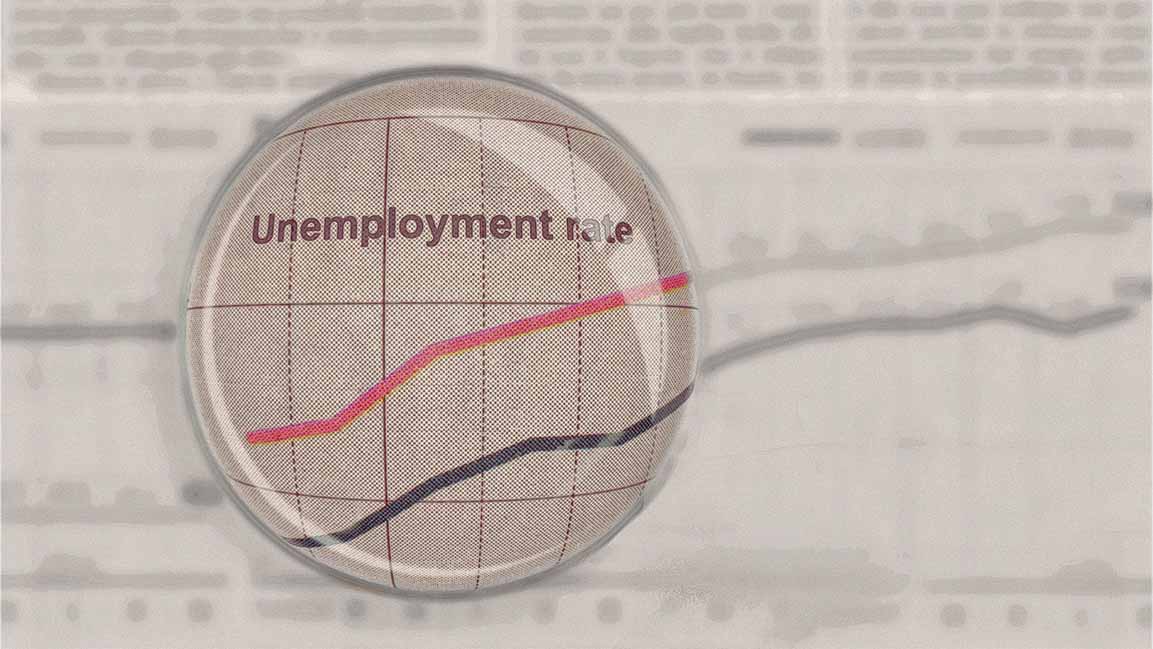- | 1:00 pm
Unemployment looms large in Gaza amid conflict, says ILO
The Gaza-Israel war has severe implications on the labor market, not only for the besieged strip but also the entire occupied Palestinian territories.

It’s been a month since the Israel-Gaza war started. Neighborhoods have been destroyed, infrastructure severely damaged, businesses have closed, there’s large-scale internal displacement, and on top of that, there’s a lack of water, food, and fuel.
Now, the International Labor Organization (ILO) shares that about 61% of jobs in Gaza have been lost as a result of the war, with more than 182,000 jobs being lost in the besieged strip alone.
The West Bank is also experiencing reduced employment levels, down by 24%, equivalent to 208,000 jobs, since October 7, says the ILO in its latest report.
“The total estimated 390,000 job losses in the two areas translate into daily labor income losses of $16 million,” the report reads.
“These figures are projected to increase if military operations in Gaza intensify and the humanitarian crisis in the enclave continues to unfold,” added the report.
During Q2 2023, the unemployment rate in Gaza hit nearly 46.6% and was ranked among the highest in the world even before the war broke out. Now, amid the Gaza-Israel war, unemployment rates have climbed to nearly 100%, notes the Palestine Economic Policy Research Institute in a report.
With halted economic activity in Gaza and the constant bombing of a population consisting of 2.4 million people, the World Bank and the International Monetary Fund have warned the public about the effects of the war on the Middle East’s overall economy.
Ruba Jaradat, ILO regional director for the Arab States, stresses the repercussions that the war has on the Palestinian labor market, stating that it has “yielded extremely worrying results.”
Since Israel’s imposed land, sea, and air blockade on the Gaza Strip in 2007, the movement of people and goods has severely impacted the enclave’s economy, resulting in losses estimated by the UN to amount to nearly $16.5 billion, says the ILO report.































